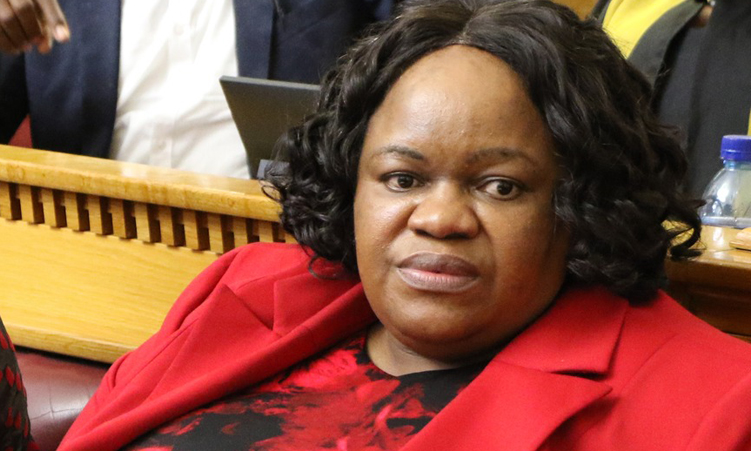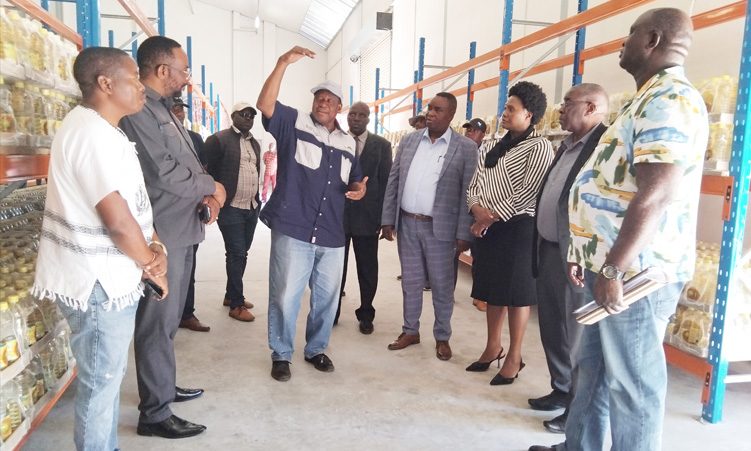Namibia is committed to finalising the new investment bill, which is currently undergoing final consultative engagements, to address the policy gap in the investment environment.
This is aimed at clarifying uncertainties around policies that would affect investors’ business in the country.
This was said by industrialisation and trade minister, Lucia Iipumbu, when she addressed stakeholders on the Namibia investment promotion and facilitation bill for the Khomas region in Windhoek yesterday.
The minister said the engagements would allow the ministry to finalise the important process to ease unlocking and attracting investments and promoting trade and investment opportunities in the country.
“The ministry has thus far conducted stakeholders’ engagement meetings in all 13 regions. Khomas is the last region we are engaging before going back to the Cabinet and parliament, respectively,” she said.
Iipumbu said the ministry is cognisant of the need to speed up this process to revive the country’s investment regulatory and policy regime and to embrace a modern and transparent legal framework that accommodates new economic dynamics and developments.
“We are further saying the new bill must be inclusive in terms of both local and international investments,” she said.
Speaking at the engagement, the deputy executive director of industrialisation and trade Michael Hamuvindu said: “To ensure that Namibia capitalises on aspects arising from the fourth Industrial Revolution, such as economic nationalism and continental free trade areas, it is necessary to adopt a modern and clear legal framework that accommodates newer economic dictates and developments.”
He said a technical team of experts from different industries, such as the central bank, the Office of the Attorney General, and the Namibian Investment Promotion and Development Board (NIPDB), would resolve key issues on the bill.
“One of the issues that was raised was the perception that the minister will be exercising super power under which all investment decisions to be made in this country must be reviewed and approved.
“However, after review it was established that the minister only has determination over those sectors that are designated as such by regulation,” Hamuvindu said.
In addition, the bill offers an advantage to local investors with draft investment thresholds and certain industries limited to local investors only.
The construction industry, however, remained a point of contention as some of the stakeholders argued they cannot compete with foreign investors who are well established and offer cheap labour.
The minister said as global investment levels have experienced a downturn, exacerbated further by the pandemic and ongoing global geopolitical matters, Namibia’s economy has also been severely affected.
“Namibia’s fall-back position remains the outdated Foreign Investment Act, which we believe does not embrace newer investments dynamics such as innovation and sustainable investment,” Iipumbu said.
According to the minister, the new investment policy regime would enhance a conducive business environment in Namibia to fully leverage on new investment strategies pertaining to renewable energy, resuscitating the economy within an updated investment legislative and policy framework comprehensively.
“This would enable a viable institutional framework to support policy ambitions through the policy desk at the ministry and NIPDB while fostering the required investor-friendly infrastructure,” she said.
“As you may all be aware, the ministry tabled this draft bill in the National Assembly in November 2021, but had to withdraw it following several calls for further consultations.
“We constituted a technical committee of senior officials from key public institutions to consider the concerns raised on the bill, and thereafter present appropriate amendments and recommendations to the Cabinet for endorsement,” she said.
Calling for robust and constructive engagement by stakeholders, Iipumbu said Namibia’s policy and legal framework for investment confines itself within the presiding global policy space while ensuring adherence to the national agenda embedded in various policies and development frameworks.
“The development of the bill, through a consultative process, is aimed at ensuring that it is fit for purpose for our national developmental trajectory.
“Ultimately, the goal is to ensure that it is aligned to our national objectives of stimulating industrialisation, structurally transforming the economy, and attracting sustainable foreign direct investment and domestic direct investment,” she said.
Yolanda Kalenga, the chief legal officer at the Office of the Attorney General, addressed some of the legal issues regarding penalties to be imposed on investors.
“After reviewing the bill, we saw it only talks about criminal offences and makes no room for administrative offences, and this creates a regime that is penalty-heavy and has the combined effect of potentially deterring or discouraging investment.
“We consider the penalty system set out in the proposed bill too ‘stiff’, and therefore we advised that they be revised again,” she said.
The ministry said input on the proposed bill will be open until Friday, and the draft will thereafter be finalised.
– email: bottomline@namibian.com.na
Stay informed with The Namibian – your source for credible journalism. Get in-depth reporting and opinions for
only N$85 a month. Invest in journalism, invest in democracy –
Subscribe Now!






